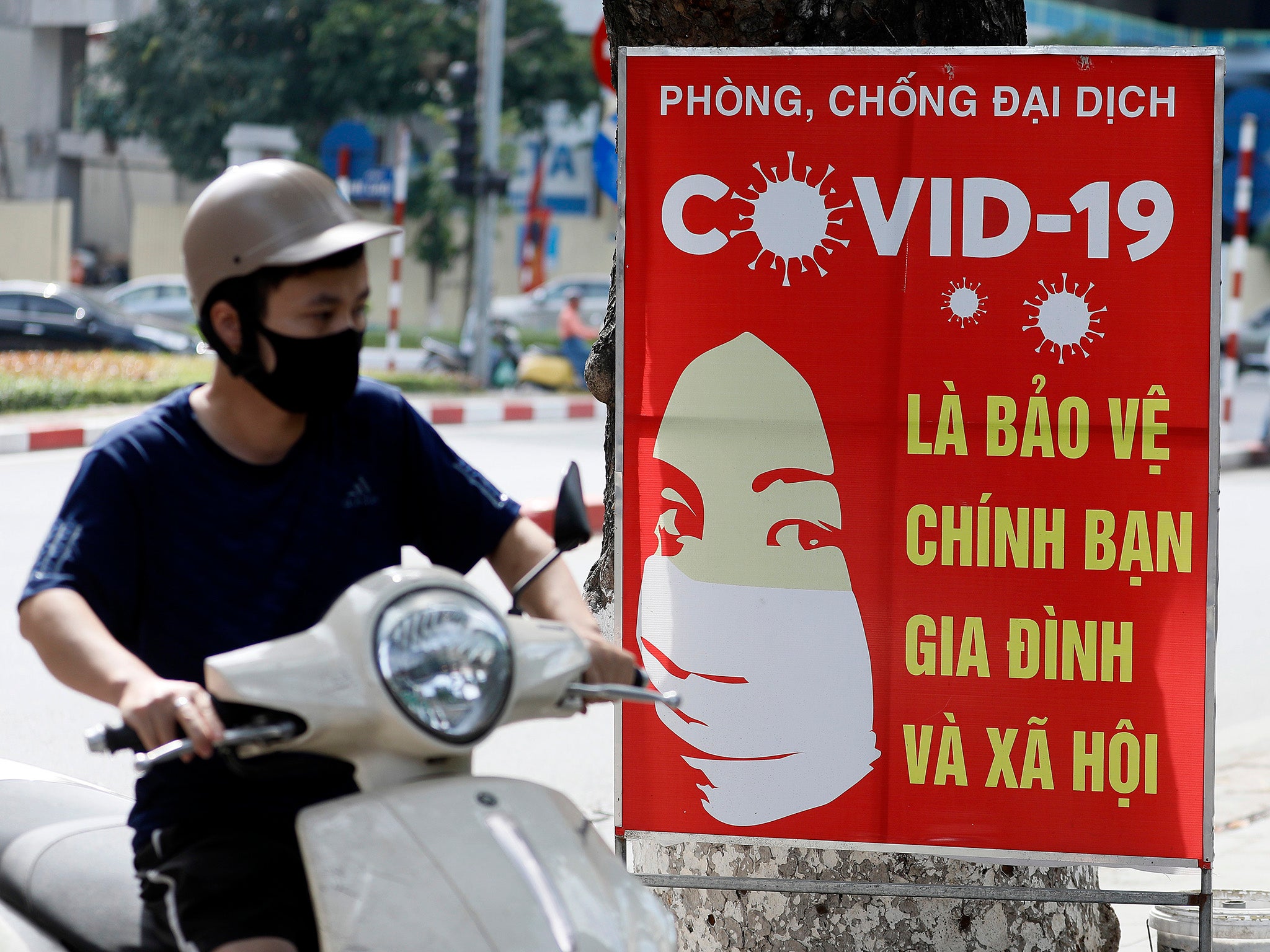Vietnam variant: What is the new mutation of the India Covid strain?
Health authorities said new variant is more transmissible by air

Your support helps us to tell the story
From reproductive rights to climate change to Big Tech, The Independent is on the ground when the story is developing. Whether it's investigating the financials of Elon Musk's pro-Trump PAC or producing our latest documentary, 'The A Word', which shines a light on the American women fighting for reproductive rights, we know how important it is to parse out the facts from the messaging.
At such a critical moment in US history, we need reporters on the ground. Your donation allows us to keep sending journalists to speak to both sides of the story.
The Independent is trusted by Americans across the entire political spectrum. And unlike many other quality news outlets, we choose not to lock Americans out of our reporting and analysis with paywalls. We believe quality journalism should be available to everyone, paid for by those who can afford it.
Your support makes all the difference.A new variant of coronavirus has been detected in Vietnam which appears to be a mutation of the Delta variant, previously known as the Indian variant.
The variant was first identified by epidemiologists in Vietnam and is under investigation. Vietnamese authorities had initially said it was a "hybrid" between the Delta variant and the Alpha variant, also known as the UK variant. However, this has been disputed by the World Health Organisation (WHO).
Little is still known about the newly-discovered variant, but Vietnam's health minister said the genome data would be made available soon.
Where has the new variant been found?
Vietnam is currently the only country with known cases of the variant, although authorities elsewhere have said there is not enough information to be able to track it.
Le Thi Quynh Mai, from Vietnam's National Institute of Hygiene and Epidemiology, said the variant was not yet recorded by the Global Initiative on Sharing All Influenza Data (Gisaid).
A senior health adviser in Singapore, which uses Gisaid to track variants, said there would not be enough information to follow the variant until more data was shared, according to The Straits Times.
Genetic sequencing tests by Vietnam's National Institute of Hygiene and Epidemiology found at least four people in Vietnam were infected with the new variant by Saturday, state-run media reported.
Vietnam recently stepped up coronavirus restrictions after a spike in cases during recent weeks. More than half of the country’s total 6,700 cases have been recorded since the end of April.
What was the confusion around the new variant?
Nguyen Thanh Long, Vietnam’s health minister, said the variant was a hybrid of the B.1.617.2 (Indian) and B.1.1.7 (UK) variants. He said it was “very dangerous” and combined characteristics of the two already known variants and was more easily transmitted by air.
The WHO has challenged the description of the variant as a “hybrid”, saying it is understood to be a slight variation on the Indian variant.
Maria Van Kerkhove, an epidemiologist at the WHO, said: “This virus variant that has been detected in Vietnam and reported by the Ministry of Health in Vietnam is the B.1.617.2.
“What we understand is that it is this B.1.617.2 variant with one additional deletion in the location in the spike protein.
“So, this has been reported as a hybrid, but in fact, what it is, is this one mutation, the [B.1.617.2] variant with an additional deletion.”
Ms Van Kerkhove reiterated that the B.1.617.2 variant was known to be more transmissible and said the WHO would provide more information about the new variant as soon as possible.
Public Health England said the discovery in Vietnam was not a new variant or a “hybrid” but was simply the Delta variant with a 144 deletion.
Will vaccines still work against the new variant?
No clear data is available on vaccine efficacy and the Vietnam variant yet, but we do know it is a mutation of the B.1.617.2, which was found to lead to reduced protection after one dose of a vaccine including Pfizer and AstraZeneca. However, a study found that two doses provided similar levels of protection as against other variants.
Join our commenting forum
Join thought-provoking conversations, follow other Independent readers and see their replies
Comments